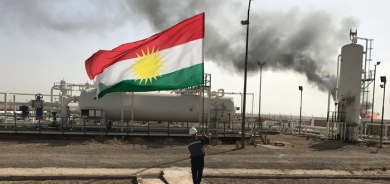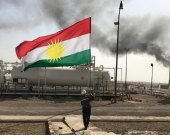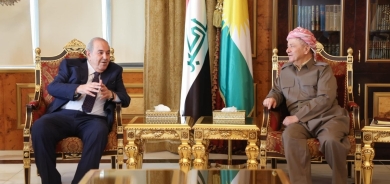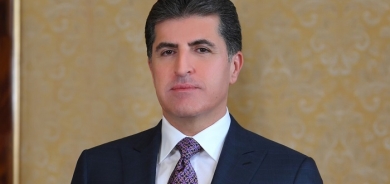Kurdish and Iraqi Officials Discuss Joint Brigades to Counter ISIS Resurgence in Disputed Territories

In a significant move to combat the resurgence of ISIS, officials from the Kurdistan Region’s Ministry of Peshmerga Affairs and the Iraqi Ministry of Defense are engaging in discussions aimed at forming joint brigades. These brigades, consisting of both Iraqi and Kurdish forces, are intended to address the security challenges in the disputed territories.
A delegation of Peshmerga officials is currently in Baghdad for talks on arming and financing these joint brigades. Maj. Gen. Hoshmand Rashid, the deputy chief of staff of Peshmerga forces, revealed that discussions are underway to ensure the effective collaboration of Iraqi and Kurdish military forces in countering the ISIS threat.
Additionally, the Kurdish military officials are scheduled to meet with the Iraqi Joint Operations Command in Baghdad, further underscoring the commitment to cooperative efforts against ISIS.
The United States-led coalition, which has been actively involved in the fight against ISIS, has been working closely with both the Kurdistan Region and Iraqi ministries to bolster these joint brigade initiatives.
The urgency of this collaboration stems from the security vacuum that emerged following the ouster of Peshmerga forces in 2017 by Iraqi forces and Shiite militias. This security void has allowed ISIS remnants to regroup and carry out sporadic attacks across a broad expanse of territory stretching from Khanaqin in central Diyala province to Mosul in the north.
The term "security vacuum" has become a common refrain among officials from Iraq, the Kurdistan Region, and the US-led anti-ISIS Coalition. It describes the absence of unified military communication and strategy in these disputed areas, making them vulnerable to extremist threats.
In addition to coordinated military operations, Kurdistan Region officials have consistently called on Baghdad to expedite the formation of joint brigades. This proactive approach aims to prevent any resurgence of the terror group and ensure the safety and stability of the disputed territories.
As discussions continue, regional and international stakeholders remain vigilant in their commitment to eradicating the ISIS threat and establishing lasting security in the region.















